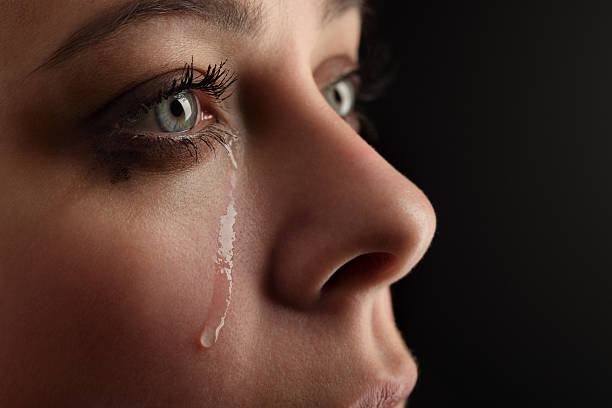|
I read something recently that really struck a chord with me and I kind of can't stop thinking about it. I don't mean it's my every waking thought, but it pops into my head now and again and the trail that it leads me to expands (the way thoughts do) and takes me places I didn't think I'd go. It's about grief. Which means this isn't the sort of blog post that I usually do. Feel free to move along if it's not your cuppa tea. Reading what I write it not a requirement, it's an option. Always.
So, to those of you who are still here, The line I read was, "Grief is kind of like a chronic illness". Whoa! A completely new thought. I've probably read more than the average person about grief because at one time, it was part of my job to understand it. I worked at a Hospice for nearly twelve years which means dealing with dying, death and grief on a daily basis, up close and personal, became very familiar ground for me. I read everything I could find (which was surprisingly little) and spoke to everyone who I assumed would have great insight (in general they did not). I listened, I observed and I drew my own conclusions which served me well. Not just during that job, but in real life. Still, I had never heard of the experience of grief explained quite that way. The concept was very interesting to me in an academic sort of way. We all experience grief and from a very young age. You think not? Grief isn't just about death, it's about loss. And there are all different kinds of loss. For example: A small child losing the beloved stuffed animal that they cuddle with every night is a genuine loss. When they are sobbing themselves to sleep, it's not just the absence of a favourite toy that they are grieving, it's the comfort and constancy that toy brings them which is now missing. A loss could be the end of a relationship, or a job. The grief could stem from a cross country move that - while the move itself is it good thing - familiarity and history are left behind. We grieve unmet wishes and goals, opportunities lost, broken objects that represent memories and the end of nearly anything. But the grief attached to a person's death is another level. It is over whelming and all encompassing and very personal. Unfortunately for those who like things to be very rigidly defined, grief is not just one thing. There is no timetable, there is no one correct way to grieve and there is no hard stop. Much like a chronic illness, there are times when the patient is doing very well, seemingly "normal", and everyone assumes, "hurrah" the worst is behind us now we can move on and everything is back the way it used to be. We don't have to deal with this anymore. Not necessarily so. Sometimes people with a chronic illness have a setback and the illness once again flares up and is real again, has to be dealt with again. Grief sneaks up on us in that same way. Unexpectedly out of the blue, there will be a moment, a word, a fragrance - something - that brings to mind the loss of the person you are grieving and you grieve all over again. This is absolutely totally entirely normal. It's just part of the process. And we, the people are those who are friends and family of those experiencing loss, need to be better about how we provide support. There should be no recriminations: "You should be over this by now" ( you never get "over" a loss. Eventually you find a way to move past it) There should be no blame: "You are bringing me down, making me sad" (newsflash this isn't about you. it's about the person who is grieving) There should be no forced hiding or disguising the way you feel: "You need to smile more." (faking a smile to please someone else does not make the pain go away. and in fact makes it worse). There should be no shame: "You are always in a mood", (grief is not a mood, it is a state of being) There should be no impatience, "I'm so tired of your sadness. You need to get over this" (again, no timetable to grief) The first person that I knew that died was when I was in elementary school. There was a girl in my class named Eloise. She was very sweet, very quiet, small and fairy-like with fly-away hair so blonde it was nearly white and big blue eyes. Every day at recess she crouched on the ground leaning up against the side of the big brick school house watching other kids play. I was the new kid who didn't have a gang with which to hang and was therefore also on the fringes; out looking in. I asked if I could sit beside her, she shyly smiled and allowed it. And it became our daily routine. In the very candid and upfront way that children have, Eloise told me of the problem she had with her heart. She was always cold, always tired, very weak and her lips were often tinged with blue. She wore multiple layers of clothes every day and on very cold days, her teeth would be chattering despite being so well bundled. I often positioned the way I sat so that I blocked (or tried to block) the worst of the wind from her. We talked about so many things: books, music, dreams, imaginary creatures and our pets. We discussed school our families and our neighbors. Eloise was both much more sophisticated than I was and much more naïve than I, at the same time. One day, she wasn't at school. Not so unusual, as she was sick far more than the average kiddo. Then it was a week. Then a month. Nobody ever said a word about her absence. Finally, one day I got very brave and after class went up to our teacher and asked. I could tell that she did not want to answer me but when I pressed, eventually told me the truth. That Eloise had died. I felt tears come to my eyes and my teacher ordered me to "Not be sad because there's nothing I can do about it anyway. " Do not be sad. What a moronic order. Emotions do not come with an on/off switch. We feel what we feel! Well, of course now I'm much older, much wiser and far more experienced. Not only with the knowledge I gained in my time at Hospice but also my own life experiences. With each loss, I have garnered more knowledge and the confidence that comes through age, information and personal tragedies. One of the best things I learned from my time at Hospice was "The end of everything is the beginning of something else". I take great comfort from that. Believing that to be true has gotten me through a lot of dark days. And every once in awhile, I hear or read of something else that I tuck away that could help me or perhaps someone else through a time of grief. Grief is a part of the life experience. It's not all sunshine and rainbows. And when a time to grieve happens, it's nice to have a few truisms and some people who truly understand to lean on a little bit. I think of myself as having started out in life as a lumpy big of stone. Every time I pass through a rough, tough, difficult part of my life, a few of those lumps are smoothed off a bit and took off a couple of sharp edges. By this point, the stone that is me should be fairly smooth. My hope is that eventually the gem that might be hidden inside will eventually begin to shine through.
0 Comments
Leave a Reply. |
AuthorYup, this is me. Some people said, "Sam, you should write a Blog". "Well, there's a thought", I thought to myself. And so here it is. Archives
July 2024
Categories |


 RSS Feed
RSS Feed